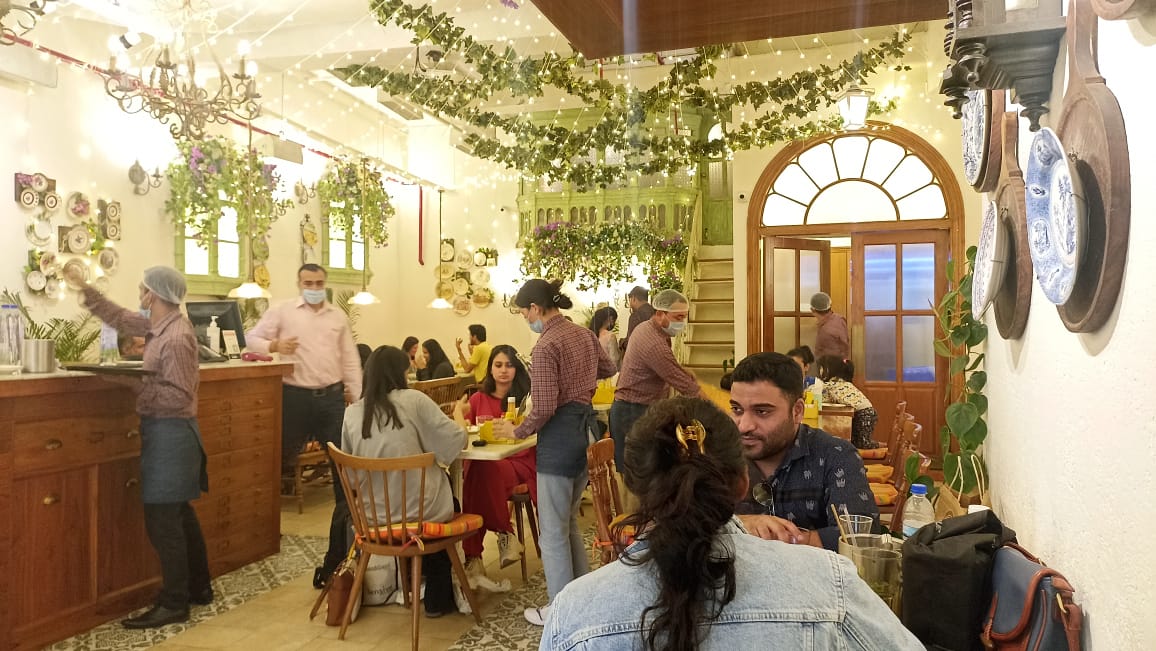NEW DELHI: After the implementation of the new liquor policy, the unavailability of liquor in several restaurants, bars and cafes has resulted in about 20% to 40% loss. Brand-specific customers are now moving either to Gurgaon or Noida to enjoy their choices of drinks. The Sunday Guardian visited some popular restaurants and cafes to understand the present scenario. Cafe Tonino in Connaught Place is popular among young crowds. The Italian cafe is suffering a loss of about 25% to 30% due to the unavailability of beers and wines. Around 50% to 60% of beer brands are unavailable at the moment, including Erdinger, Hoegaarden, and Budweiser. Only one case of Kingfisher Ultra is available for now. Similarly, the unavailability of regular wine has also resulted in a loss. A staff member, without naming any specific wine brand names, told this paper, “Regular wine that cost around Rs 1,000-1,500 is also unavailable; so our popular cocktail, Martini Rosso, is unavailable as of now.” Similarly, other brands of Scotch Whisky such as Chivas Regal 12 Year Old Blended Scotch Whisky, Glenfiddich 12 Year and Glenfiddich 18 Year Old Single Malt Scotch Whisky, and Jack Daniel’s Old No 7 are also unavailable. “We have a huge list; these are peak seasons, if we do not receive the brands on time, we will suffer a huge loss,” a staff member, on the condition of anonymity, told this paper.
Another Italian restaurant, Diggin, is also suffering a loss of about 25% in business. The unavailability of Tequila like Don Angel, Viva Mojo; Greater Than Gin, Sparkling Wine, has resulted in the loss of customers. Similarly, beer brands such as Kingfisher, Heineken, and Budweiser are again unavailable. Again, an official, on the condition of anonymity, told this paper, “A lot of brands are unavailable. Only a few days back, Teacher’s (Whisky) became available.” He further refused to comment more on the number of brands presently unavailable.
Known for eclectic cuisine and contemporary ambiance, Lord of the Drinks provides the best dining services in India. Unfortunately, the contemporary menu of drinks is suffering a loss of about 30% to 40%. The official, on the condition of anonymity, told this paper, “We have been suffering a huge loss due to the unavailability of brands. The brand-specific customers, including youngsters, are disappointed as they do not get their choice of drinks. Ultimately, we lose customers.” The scenario has been the same for the past two-and-half months. Brands, such as Camino (Tequila), Smirnoff, Grey Goose (vodka), Black Label, and beer brands such as Budweiser, Heineken, Hoegaarden, are again unavailable. “Currently, Kingfisher Ultra is slowly arriving,” a staff member told this paper. The official of the Chinese restaurant, Zen, refused to comment on the unavailability of liquor, but hinted at the fact that some brands are unavailable, without mentioning any specific names and details.
The Confederation of Indian Alcoholic Beverage Companies (CIABC) has pointed out several issues that have arisen due to the old excise policy such as excessive license fees for Indian products (50 times more than imported products), archaic cost reimbursements fixed 20 years back, dated price-fixing rules and many other such operational issues. Vinod Giri, the director-general of CIABC, told this paper, “Delhi is facing a shortage of premium alcoholic brands which will stick out more and more the peak season for drinks draws in. This is due to a variety of reasons arising out of the mid-year switch back to the old excise policy. Well-known brands of many companies are yet to re-register in Delhi. Some are held back at the government’s end for lack of approval, and some voluntarily by companies since they find the demand of paying full-year brand registration fee though there is only half the year left unreasonable and commercially unworkable.”
He further added, “Frequent changes in policy have unsettling effects as the industry, above all, seeks a stable regulatory framework. Outstanding matters such as what to do with the stock left over at the time of excise policy changes are yet to be resolved even after nearly a year which affects the confidence of the suppliers. At the consumer end, the expansion of the retail footprint has slowed down and licences for bars and licences are reported to be taking time in processing. We get a sense that the excise authorities, despite best efforts, are trying to manage too many issues at the same time without due prioritisation.”
Liquor unavailability makes restaurants, cafes face losses
- Advertisement -

